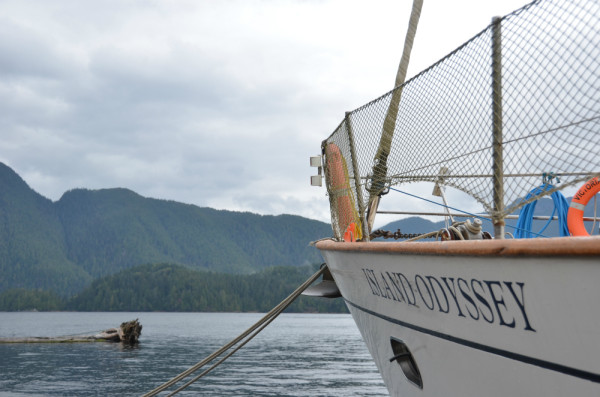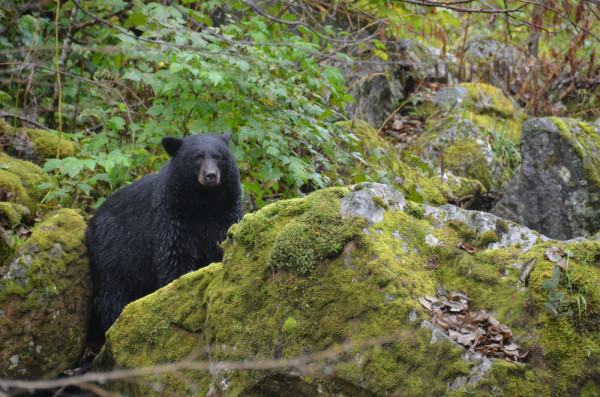Why the Great Bear Rainforest should not be Sacrificed for Oil
By Sharolyn Mathieu Vettese, President & Inventor, Wind Simplicity
When I saw that WWF was organizing a trip in September 2013 to the Great Bear Rainforest in British Colombia, I was in. I had wanted to go there with my family to see the storied “Spirit Bear” for the past seventeen years ever since my oldest son was eleven years old. Going on a yacht through this remote wilderness with like-minded people was second best.
I brought along Jeff Rubin’s book, The End of Growth” to help me have a greater understanding of world economic trends and how it was impacting my own business of renewable energy generation. As it turned out, I had picked the perfect book.
We arrived at our boarding port after taking a small plane from Vancouver, then took a water taxi. This was a trip into isolation, or more accurately, wilderness.
The wilderness of the Great Bear Rainforest is unique, yet similar to the Camerounian tropical rainforest that I grew up in. Both are lush, and have a rich multi-layered wildlife. All forms of life are significant players in the delicate balance of a healthy ecosystem.
A notable player in the region is the salmon. We were there to witness different species that come from the Pacific Ocean to return home to spawn then die in specific creeks, of which there were many. We watched the salmon fish struggle up the creek in low water levels as they briefly flapped their tails as hard as they could to propel themselves forward, and then rest before continuing their journey to where they themselves were born in that particular creek. As spectators, we had it easy as we watched the salmon gift themselves to feed birds, wolves, bears, and millions of humans in a ritual we humans barely understand, but take for granted.
Dead salmon were seen in the water, on the banks, and into the forest. Recent dead were selectively eaten by different animals, and insects. Most impressively, the salmon’s decomposing bodies provided valuable nitrogen to the forest trees in the region’s poor soil. Ugly maggots that feast on decomposing flesh are themselves food for the salmon fry in the spring.
We were privileged to watch a young grizzly happily hold a large chum in his front paws as he pulled off the skin before he grabbed another one. It was nothing like the grizzly bear statues I had seen.
The Great Bear Rainforest area was beautifully wild, and remote. It was peaceful. No white noise.
So, it was a strange coincidence that I was reading about the wilderness of the Princess Royal Island just when our boat was in those waters. Jeff Rubin mentioned it because it was the Canadian government’s preferred route to ship Alberta’s bitumen from the tar sands to the vehicle drivers in China and India. When I looked at the pristine waters and land that was home to the seals, humpback, orcas, and fin whales, salmon, crabs, porpoises, eagles, kelp, and others (that I saw and did not see); there was no way that sacrificing them made sense. There is no way the oil tankers would not have an impact on this ecosystem.
Several times, we saw sleeping whales that looked like logs. They don’t show up on radar. They would be collateral damage for oil transportation boats. Who would report the whales’ death? Whales don’t have a voice. Whales can’t vote.
The waters there get choppy very quickly and almost guarantee an accident. The damage from the Exxon Valdez in Alaska is still there 40 years later, and it was a smaller spill than what would be possible in the Great Bear Rainforest. I mean, how long would it take to report a spill? How long would it take get there? Who would pay for the spill? Where is the budget?
Jeff Rubin is correct about our dependence on cheap energy. I agree with him that conservation is the first priority. I am now convinced that renewable energy like Wind Simplicity’s Windancer™ will increase conservation and help the cultural shift that is needed for our civilization to continue in the 21st century.



